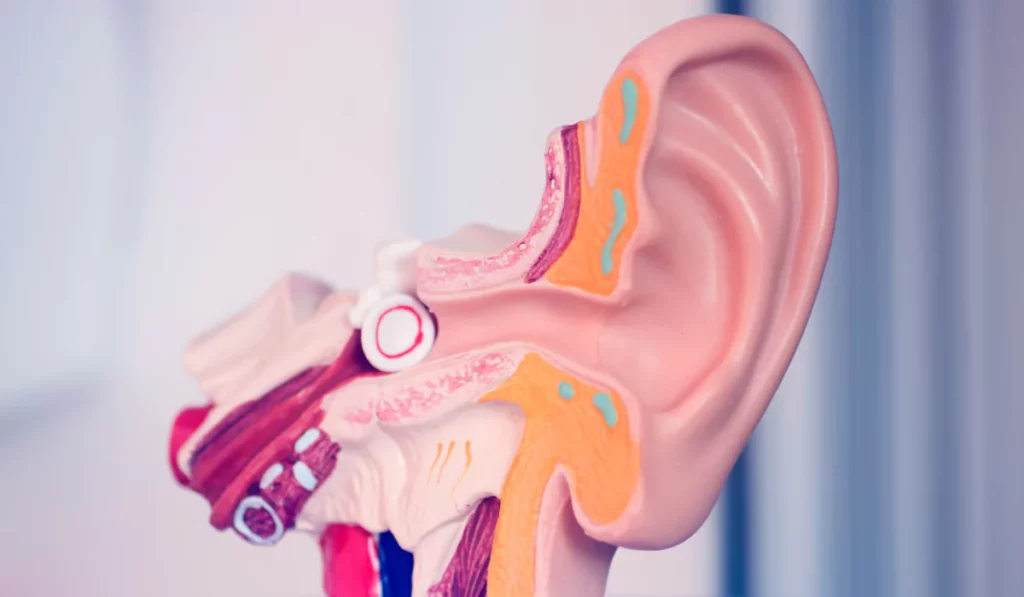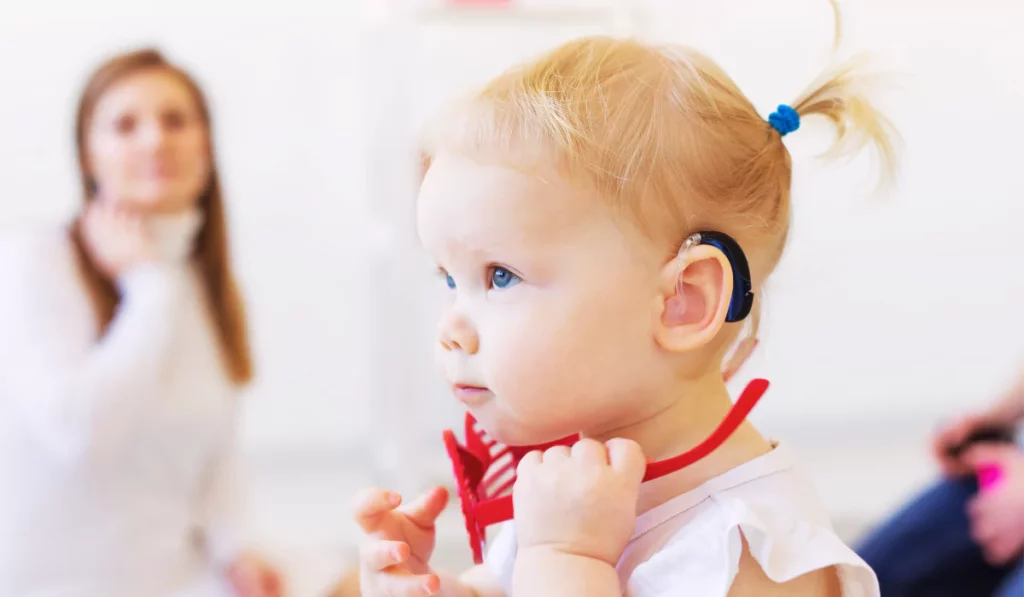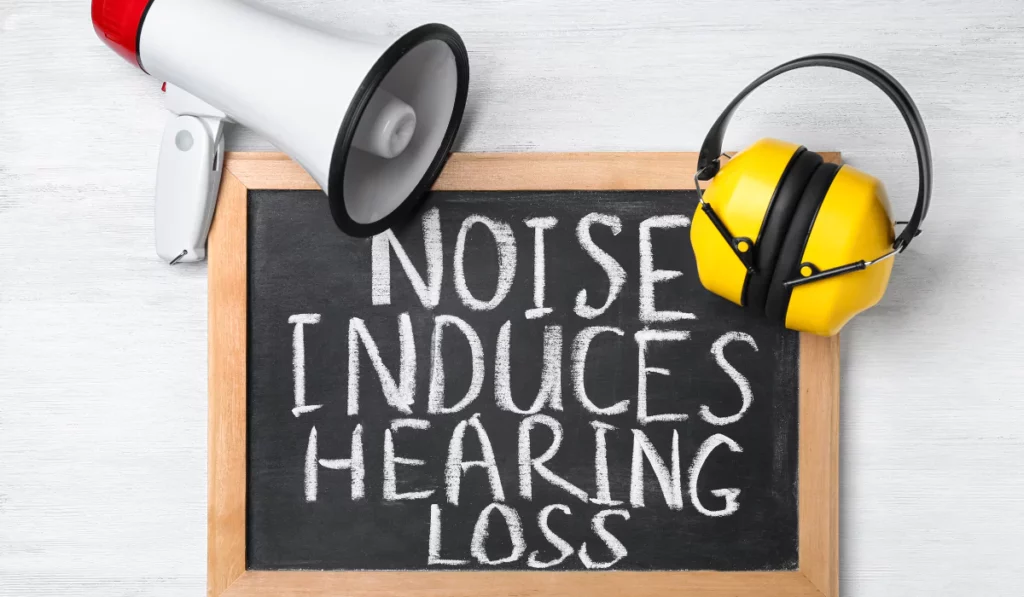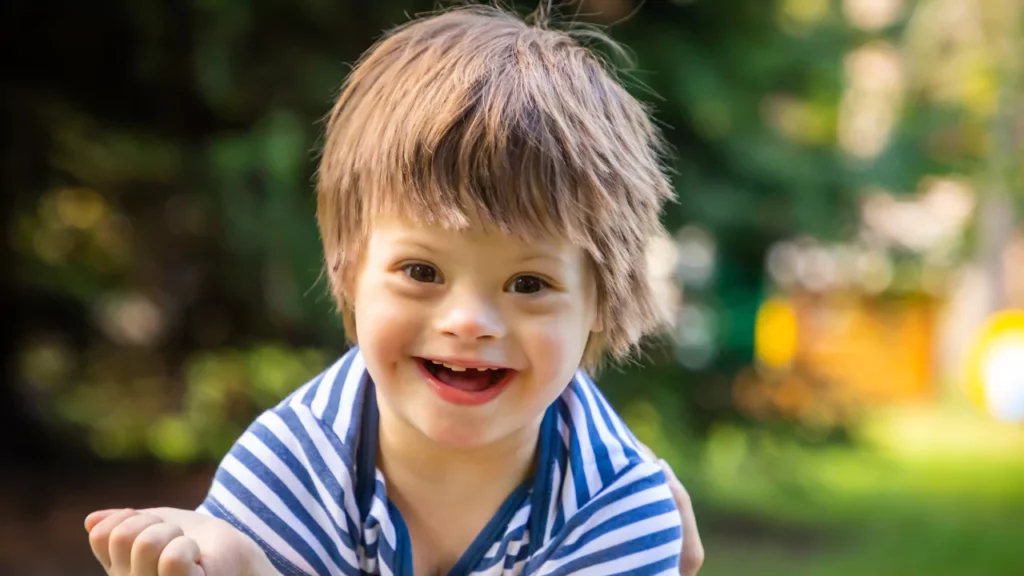Hearing loss isn’t just an inconvenience; it’s a silent challenge that can dramatically change how we experience the world. From struggling to follow conversations to missing out on the joy of music and nature’s sounds, hearing impairment touches every aspect of life.
But have you ever wondered why some people face these challenges? Is deafness inherited, or are there other causes?
In this article, we dive into the complex world of hearing loss, examining its various types, such as loss of hearing in one ear, hearing problems in the elderly, and the more severe hearing loss deafness.
We’ll also uncover the mysteries of deafness genetics, exploring how hearing loss genes play a significant role not just in inherited conditions but also in age-related hearing impairment.
Understanding these factors is crucial, as it guides the treatment for hearing problems and sheds light on diseases that cause deafness.
So let’s dive in to decode the genetics of hearing loss and its impact on our lives.
Quick Overview:
Our ears, divided into outer, middle, and inner sections, play key roles in hearing. Hearing loss, varying from mild to complete deafness arises from numerous causes, including aging, noise exposure, infections, injuries, and crucially, genetics.
Genetics significantly influence hearing loss, with genes like GJB2 (connexin 26) being pivotal. Hearing loss can be non-syndromic (only affecting hearing) or syndromic (associated with other health issues).
It’s inherited in various ways – autosomal dominant, autosomal recessive, or X-linked – impacting family planning and treatment options.
Other non-genetic causes include environmental noise, aging, illnesses, and certain medications. Prevention and management strategies, like avoiding loud noises, regular hearing checks, and using hearing aids or implants, are vital.
For a thorough understanding of the genetic basis, types, and treatments of hearing loss, dive into our full article.
Understanding Hearing Loss
Hearing is a vital sense that helps us connect with others, learn, and enjoy life. But what exactly happens in our ears when we hear sounds? And what does it mean when someone has hearing problems? Let’s dive into how our ears work, what hearing loss is, and how common it is.
How Common is Hearing Loss
Hearing loss is a big issue worldwide. The World Health Organization says that over 5% of the world’s people (430 million) need help because of serious hearing loss.
According to their predictions, this number will rise to over 700 million by 2050.
Not only does hearing loss affect individuals, but it also costs the global economy a lot of money – around US$ 980 billion yearly! This includes healthcare costs, support in education, lost work productivity, and other societal costs.
How Our Ears Work and How We Hear
Our ear is divided into three parts: the outer ear, the middle ear, and the inner ear, each playing a crucial role in hearing.

- The outer ear includes the part we can see (the pinna) and the ear canal. The pinna catches sound waves and sends them down the ear canal to the eardrum, a thin membrane that vibrates with these waves.
- The middle ear is a tiny air pocket behind the eardrum. It holds three small bones (the ossicles: malleus, incus, and stapes) that pick up the eardrum’s vibrations and boost them before sending them to the inner ear.
- The inner ear is deep in our skull and filled with fluid. It has the cochlea, a snail-shaped part, which turns the vibrations into electrical signals that our brain understands as sound. The inner ear also helps us keep our balance.
What is Hearing Loss?
Hearing loss means not being able to hear as well as normal.
It can happen in one ear or both and can range from being a little hard of hearing to complete deafness.
Many things can cause hearing loss, like getting older, being around loud noises too much, infections, injuries, or even genetics. Some medicines and diseases can also lead to hearing loss.
Types of Hearing Loss
There are different kinds of hearing loss, and each kind happens because of problems in different parts of the ear. Let’s talk about the three main kinds:
Conductive Hearing Loss
Conductive hearing loss happens when sound waves can’t get to the inner part of the ear.
This could be because there’s something blocking the way in the outer or middle ear. When someone has conductive hearing loss, sounds might be quieter or sound like they’re muffled.
Common reasons for conductive hearing loss include:
- Ear infections, which can make the middle ear swollen and filled with fluid.
- Fluid in the ear, which might happen with allergies, colds, or flying in an airplane.
- Earwax blockage, which can stop sound from getting through the ear canal.
- Abnormal bone growth in the ear, which can change how the middle ear bones work.
Treatments for conductive hearing loss include medicines, surgery, or hearing aids.
Sensorineural Hearing Loss
Sensorineural hearing loss is when the inner ear or the nerve that goes from the ear to the brain is damaged. This kind of hearing loss can make sounds seem weird, unclear, or too loud.
Common causes of sensorineural hearing loss are:
- Getting older, which can wear out parts of the inner ear.
- Being around loud noises a lot, which can hurt the tiny hair cells in the cochlea that help us hear.
- Head injuries, which can damage the inner ear or the nerve to the brain.
- Some medicines that might hurt the inner ear or the hearing nerve.
Usually, sensorineural hearing loss can’t be fixed, but things like hearing aids, cochlear implants, or special devices can help people hear better.
Mixed Hearing Loss
As the name suggests, mixed hearing loss is when someone has both conductive and sensorineural hearing loss. This means there are problems in the outer or middle ear and the inner ear or hearing nerve.
Mixed hearing loss can happen in different ways and have different symptoms.
Some examples of how mixed hearing loss can happen are:
- Someone with a genetic hearing problem in the inner ear who also gets an ear infection in the middle ear.
- An older person with hearing loss due to age who also has earwax buildup or fluid in the ear.
- Someone who has hearing loss from loud noise and then gets a head injury that hurts the middle ear or hearing nerve.
Treatment for mixed hearing loss might include different methods, depending on what’s causing it and how bad the hearing loss is.
To sum it up, conductive hearing loss can often be fixed or helped with medicine, surgery, or hearing aids; sensorineural hearing loss usually can’t be cured but can be managed to some extent with hearing aids, implants, or special devices; and mixed hearing loss might need a mix of these treatments.
Genetics and Hearing Loss
Genetics is all about how features are passed from parents to kids through genes. Genes are like the body’s instructions for making proteins that handle all of our biological functions.
Sometimes, changes in these genes can lead to hearing loss or deafness.
There are many types of genetic hearing loss, and it depends on which genes are involved. Here are two types of genetic hearing loss:
Non-Syndromic Hearing Loss
This is when the only issue is hearing loss, with no other health problems. Around 70% of genetic hearing loss is non-syndromic.
Many genes can cause this, but a common one is the GJB2 gene. This gene makes a protein called connexin 26. This protein is crucial for how sound signals are sent in the inner ear. Changes in the GJB2 gene can cause hearing loss from mild to very severe, and it can affect one or both ears.
Syndromic Hearing Loss
This is when hearing loss happens with other symptoms. For example, some with hearing loss might also have problems with their vision, heart, or kidneys. About 30% of genetic hearing loss is like this. There are over 400 syndromes linked to hearing loss. Some genetic syndromes that cause hearing loss are:
- Usher Syndrome: This affects hearing and sight. People with Usher syndrome are born with or develop hearing loss, and later they lose night vision and side vision.
- Pendred Syndrome: This affects the thyroid and inner ear. People with Pendred syndrome have hearing loss and might also have a bigger thyroid or balance issues.
- Waardenburg Syndrome: This affects hair, skin, eyes, and the inner ear. People with Waardenburg syndrome have hearing loss and might also have white patches of hair, different-colored eyes, or wide-spaced eyes.
Genes of deafness also play a role in other types of hearing loss, like age-related hearing loss (presbycusis) and noise-induced hearing loss. Both of these can be affected by genetics and things like how you live and what you’re exposed to.
Is Hearing Loss Inherited?
About 50% or more of hearing loss is predicted to be because of genetics. There are also cases of hearing loss that show up later in life that are partly caused by genes.
For example, some people might have a bigger chance of getting hearing loss as they get older because of their genes.

Genetic hearing loss can be split into two main types: syndromic and non-syndromic as we discussed earlier.
Is Hearing Loss Inherited From Father Or Mother
Hearing loss can be inherited from either parent, and the manner of inheritance depends on the specific genetic change responsible for the hearing loss.
Genetics of hearing loss can be passed down in different ways, based on which chromosome the mutation is on.
Chromosomes are the structures that hold our genes. We have 23 pairs of chromosomes, one set from each parent. The first 22 pairs are autosomes, and the last pair are the sex chromosomes, which decide if we are male or female.
The ways genetic hearing loss can be inherited include:
- Autosomal dominant: This means you only need one copy of the mutated gene from one parent to have hearing loss. The chance of passing this gene and deafness to your kids is 50%. An example is Stickler syndrome, which also causes eye, joint, and face problems.
- Autosomal recessive: This means you need two copies of the mutated gene, one from each parent, to have hearing loss. The parents usually don’t have hearing loss, but they carry the gene. An example is DFNB1, caused by mutations in the GJB2 gene, responsible for a significant portion of genetic deafness in many populations. Parents might not show any symptoms but still pass the mutated gene to their children.
- X-linked: This means the mutation is on the X chromosome. Males, who have one X and one Y chromosome, are more likely to be affected by X-linked hearing loss. Females, who have two X chromosomes, might carry the mutation but usually don’t have hearing loss because their other X chromosome makes up for it. The chance of passing the mutation to kids depends on whether the affected parent is male or female. An example of this is Alport syndrome, which can lead to progressive hearing loss, often more prevalent and severe in males.
Understanding these patterns of genetics of hearing loss is crucial in diagnosing and managing hearing loss, especially in families where these conditions might be present.
Genetic counseling often plays a vital role for families dealing with hereditary hearing loss, offering insights into the risks and implications for future generations.
Can Inherited Deafness Treated Or Managed
Research in the genetics of hearing loss is helping us understand and treat hearing loss better. Scientists are finding new genes that cause hearing loss and looking at how they affect the ears and brain.
The manageability and treatment options for genetic deafness largely depend on the specific type of genetic mutation and the way it affects hearing. Although a complete cure for many forms of genetic deafness is not currently available, there are several effective ways to manage and alleviate the condition.

Ongoing research and advancements in medical science offer hope for more effective treatments in the future. Some examples of this research are:
- Advanced Hearing Aids and Implants: While these don’t cure genetic deafness, they are continually being improved to better address the specific needs of those with inherited hearing loss. For many people with genetic hearing loss, hearing aids and cochlear implants are the mainstay of management. These devices can significantly improve hearing and quality of life, even though they don’t cure the underlying genetic condition.
- Pharmacological Treatments: Scientists are exploring drugs that target the pathways and mechanisms affected by genetic mutations. These drugs could potentially prevent or slow the progression of hearing loss by protecting or repairing the inner ear cells.
- Gene Therapy: This tries to fix or replace the gene causing hearing loss. For example, scientists have managed to bring back hearing in mice with a certain deafness gene by using a virus to deliver a healthy gene to their ears.
- Stem Cell Therapy: This uses special cells that can turn into any cell type to fix damaged ear cells. Scientists have grown human inner ear cells from stem cells and used them to partly restore hearing in animals.
- Genetic Testing and Counseling: This helps people who have or might get genetic hearing loss. Testing can find out what kind of hearing loss it is and how it might change. Counseling helps people understand their test results, the chances of passing on hearing loss, and what options they have.
Genetics of deafness is an important field that tells us a lot about why people have hearing loss.
By learning more about the genetics of hearing loss, we can get better at preventing, diagnosing, treating, and dealing with this issue.
Non-Genetic Causes of Hearing Loss
Hearing loss can happen for many reasons, and not all of them are because of inherited genes.
There are a lot of everyday things that can cause hearing problems, and they can affect anyone, no matter how old they are. Here are some of these common causes that aren’t related to genetics.

- Loud Noises and the Environment: Being around really loud sounds like heavy machinery, loud music, or explosions can hurt the sensitive parts inside our ears that help us hear. This can lead to noise-induced hearing loss. This kind of hearing loss might go away, or it might be permanent, depending on how loud and for how long you were around the noise. Getting hit on the head, having ear infections, or getting something stuck in your ear can also make you lose your hearing. Some chemicals, like ones found in cleaning products, paints, or pesticides, are bad for your ears too. This is called ototoxicity, and it can happen if you breathe in, swallow, or get these chemicals on your skin.
- Getting Older: As we age, it’s normal for our hearing to get a bit worse. This is called age-related hearing loss, or presbycusis. It usually makes it harder to hear high-pitched sounds, like people talking. While getting older is a natural part of life, things like diabetes, high blood pressure, or heart problems can make hearing loss worse in the elderly. This kind of hearing loss can make it tough for older people to talk with others and enjoy life, and it can even affect their mental health.
- Illnesses and Infections: Certain sicknesses and infections can hurt your ears and cause hearing loss. These include serious conditions like meningitis, measles, mumps, rubella, syphilis, and HIV. Some diseases that affect your whole body, like rheumatoid arthritis, lupus, or Sjögren’s syndrome, can also lead to hearing problems. Hearing loss from these diseases can happen suddenly or over time, and you might also have other symptoms like a fever, pain, or feeling dizzy.
- Medicines: Some medicines can have side effects that harm your ears and cause hearing loss. These are known as ototoxic drugs and include certain types of antibiotics, painkillers, cancer drugs, water pills, and malaria drugs. Whether the hearing loss from these drugs is temporary or permanent depends on how much you take, for how long, and how your body reacts. These medicines can be even more harmful to your hearing if you’re also around loud noises, getting older, or have a genetic risk for hearing loss.
Prevention and Management of Hearing Loss
Hearing loss can change your life and can even impact your mental health. But there’s good news: we can prevent, find, and treat hearing loss (at least in some cases).
With the right steps, people with hearing loss can improve their hearing, communicate better, and have a better quality of life.

Preventing Hearing Loss
Some kinds of hearing loss can’t be fixed, so it’s really important to look after your ears. Here are some ways to do that:
- Stay away from really loud noises like loud music, big machines, or fireworks. If you’re around loud sounds, wearing earplugs or earmuffs can help lower the noise.
- Keep your ears clean and get your hearing checked regularly, especially if you’re over 60, have family members with hearing loss, or work in a noisy job. Hearing tests can spot any changes in your hearing and figure out what kind and how much hearing loss you might have.
- Be careful with medicines that can hurt your hearing. Some antibiotics, painkillers, and cancer drugs can damage your ears. If you need these medicines, talk to your doctor about the risks and keep an eye on your hearing.
Managing Hearing Loss
If you’re dealing with hearing loss, there are lots of ways to help you hear better:
- Hearing aids are gadgets that make sounds louder and clearer. They can help if you have mild to moderate hearing loss, but you’ll need a professional to fit and adjust them.
- Cochlear implants are a bigger deal. They’re devices put into your ear through surgery. They skip the damaged part of your ear and send signals straight to your hearing nerve. They’re for people with really severe hearing loss and need a lot of steps like tests, surgery, and learning how to use them.
- There are other tools and tech to help you, like personal amplifiers, special headphones, apps on your phone, captions on TV, and learning sign language. These can make it easier for you to talk to people and understand what’s going on around you.
Early Detection and Help Matter
Finding and dealing with hearing loss early can make a big difference. It can help you:
- Stop your hearing from getting worse and avoid other ear problems like ringing in your ears, infections, and balance issues.
- Keep your talking and understanding skills sharp and reduce the risk of your brain functions slowing down, which can happen with hearing loss.
- Stay socially and emotionally healthy. Hearing loss can lead to feeling alone, sad, or anxious, so getting help early can prevent these problems.
So, if you start having trouble hearing things, like needing to ask people to say things again or turning up the TV, don’t wait.

Go see a hearing expert and talk about what you can do. Hearing loss isn’t just something that happens when you get older. You can do things to prevent it and manage it well.
Final Words On Genetics of Hearing Loss
Hearing loss is a big problem that affects lots of people everywhere. It can happen for many reasons, like getting older, being around too much noise, infections, certain medicines, or genetic issues.
Genes play a big part in figuring out and dealing with inherited hearing loss. Genetic counseling can help people and families understand and deal with the emotional side of hearing loss and make smart choices about their health and family planning.
If you or someone you care about is having trouble hearing, it’s a good idea to talk to a hearing expert, like an audiologist, a doctor, or a genetic specialist.
They can help you understand why you’re having hearing problems and what you can do about it.
Hearing loss isn’t something you just have to live with, especially if it’s just starting. With science and technology, there are ways to manage it and keep living your life normally.
References:
- Deafness and hearing loss – World Health Organization (WHO)
- Quick Statistics About Hearing | NIDCD
- Hearing Loss Statistics 2023: Numbers We Can’t Ignore
- Genetics of Hearing Loss | CDC
- Genetic hearing loss: the audiologist’s perspective
- Negative Molecular Diagnostics in Non-Syndromic Hearing Loss … – MDPI
- Genes and Hearing Loss – ENT Health
- Genetic hearing loss and deafness – RNID
- Restoring hearing loss through regenerative medicine
- Frontiers | Gene therapy: an emerging therapy for hair cells …
- Strategies for a regenerative therapy of hearing loss | HNO – Springer
- Ways to prevent and manage hearing loss | Get help with your hearing …

Dr. Sumeet is a seasoned geneticist turned wellness educator and successful financial blogger. GenesWellness.com, leverages his rich academic background and passion for sharing knowledge online to demystify the role of genetics in wellness. His work is globally published and he is quoted on top health platforms like Medical News Today, Healthline, MDLinx, Verywell Mind, NCOA, and more. Using his unique mix of genetics expertise and digital fluency, Dr. Sumeet inspires readers toward healthier, more informed lifestyles.





